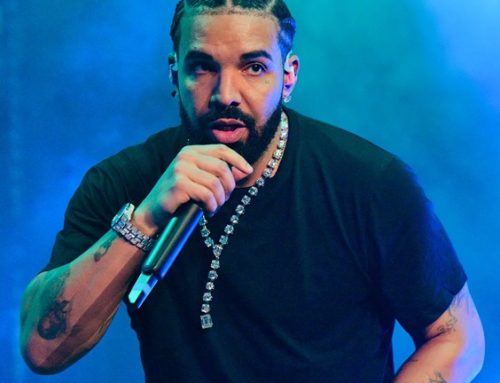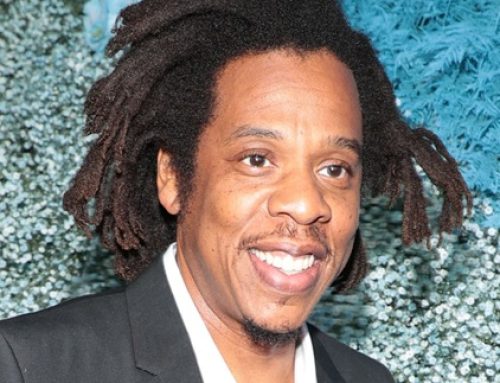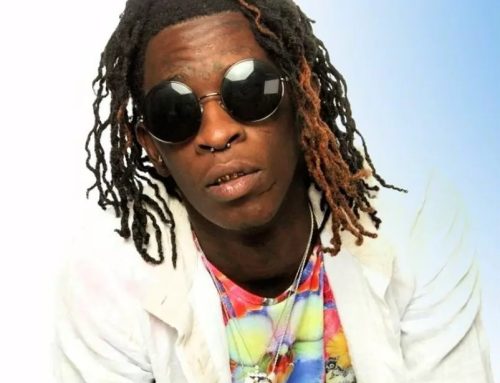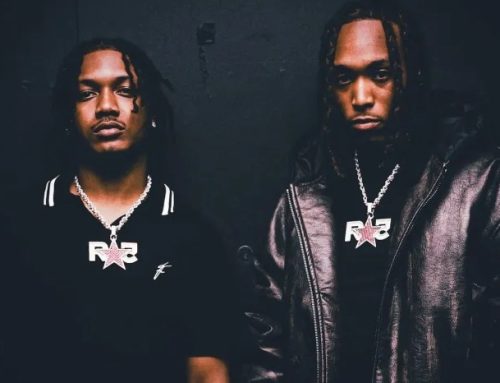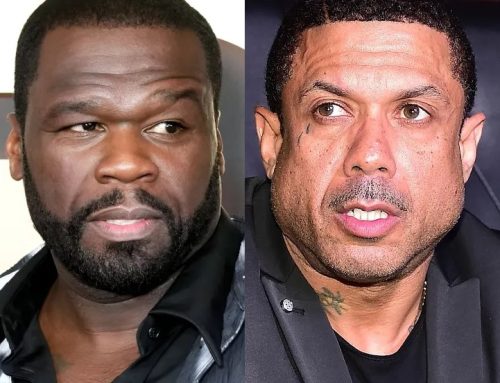The late rapper’s stats on the Hot 100 aren’t nearly what you might expect from a rapper of his level of stardom and renown — though he might have a chance to add to them following his death.
Rap legend DMX, who died at age 50 last Friday (April 9) was unquestionably one of the biggest names in music at the turn of the millennium. His star power was at a level where he was starring in big-budget action movies, performing to the biggest crowds for a non-rock act at Woodstock ’99, and selling albums by the millions with each new release. But for all his obvious and easily measured successes, there was one metric by which you wouldn’t necessarily see DMX as having all that enormous an impact: the Billboard Hot 100.
On Billboard’s marquee songs chart, DMX’s successes were still numerous, but they were relatively modest. He appeared on the chart an impressive 16 times — 11 as a lead artist — but the great majority of those entries saw peaks in the bottom half of the listing. In fact, only three times in his career did he even grace the Hot 100’s top 40, with the highest-charting of that trio coming via his guest appearance on The Lox’s “Money, Power & Respect” (No. 17 peak, 1998). His only other trips to the top 40 came with his Sheek Louch-featuring breakout single “Get at Me Dog” (No. 39, 1998) and his solo smash “Party Up (Up in Here)” (No. 27, 2000) — with other signature hits like “Ruff Ryders’ Anthem” (No. 94, 1998), “What’s My Name” (No. 67, 2000) and “X Gon’ Give It to Ya” (No. 60, 2003) all falling well short.
Three Hot 100 top 40 hits for an entire career — and never a single trip to the top 10 — seems like pretty scant chart representation for an established rap superstar, especially by today’s hip-hop blockbuster standards. (For comparison, Lil Baby scored eight top 40 hits and two top 10s last year just between the regular and deluxe tracklistings of his My Turn set.) Meanwhile, though his musical impact wasn’t necessarily reflected on the Hot 100 songs chart, it absolutely was on the Billboard 200 albums chart, where DMX made history by becoming the first artist (of any genre) to hit No. 1 with each of his first five albums (1998’s It’s Dark and Hell is Hot and Flesh of My Flesh, Blood of My Blood, 1999’s …And Then There Was X, 2001’s The Great Depression and 2003’s Grand Champ). So why wasn’t DMX more of a Hot 100 chart fixture during his lifetime?
First and foremost, it’s important to underline just how dramatic the difference in eras is between now and 20-plus years ago for rap on the Hot 100. In a streaming-driven 2021, a big album can chart every song on the Hot 100 regardless of whether or not it’s touched by radio, or even released as an official single. But back at the turn of the century — with single sales declining, and streaming still over a decade away — radio airplay was then the clear driving force of the chart. And at that time, pop, rock and R&B were the crossover genres that top 40 radio leaned on most heavily, and the ones that most regularly launched hits towards the top of the Hot 100.
DMX wasn’t the only major rap artist whose Hot 100 success was tempered as a result. Over the years 1999 and 2000, just 11 out of the Hot 100’s 131 top 10 hits came from rappers appearing in a lead role, and just a lone No. 1: Will Smith’s “Wild Wild West,” featuring Dru Hill and Kool Moe Dee. Fellow star rappers like Jay-Z and Nas, who would essentially go to war over East Coast rap supremacy in 2001, had not scored a single top 10 hit as a lead artist between them before that year, and even Eminem — arguably the biggest name in all of popular music by 2000 — notched just one top 10 hit (“The Real Slim Shady,” No. 4 in 2000) between his first two major label LPs.
Although he was at his commercial peak at the time, DMX was a particularly poor fit for crossover airplay. The rapper was so raw and uncompromising in his music that even his seemingly gentler potential hits — like the warmly produced 1998 relationship tale “How’s It Goin’ Down” (No. 70 in 1998) or the same year’s disco-sampling get-down-tonight anthem “It’s All Good” (never released as an official single) — still tended to be too profane and/or violent for radio to be able to do much with them. With its riotous beat and shout-along chorus, “Party Up” was too massive and attention-grabbing for pop radio to ignore it completely, but it was also still too aggro in its furious verses for the format to totally embrace it, resulting in the song topping out at No. 39 on Pop Airplay — DMX’s lone appearance on the chart. (His track record on R&B/Hip-Hop Airplay was better, but still maybe less staggering than you’d expect — he notched 26 entries on that chart, but only two top 10s, led by “Party Up” peaking at No. 6.)
It’s also worth noting that, with a couple rare exceptions, DMX never attempted to court crossover by having a big-name guest perform the chorus to his single, or by contributing guest verses of his own to pop stars’ new releases. He did feature R&B hitmakers Faith Evans and Sisqo on a couple of his singles (“How’s It Goin’ Down” and 2000’s “What You Want,” respectively), but both singers were mostly kept to backing vocals, with the primary hooks still coming from X. And while he did appear on his Romeo Must Die co-star Aaliyah’s “Come Back in One Piece” single from that movie’s soundtrack, that song was so dramatically overshadowed by the project’s lead single (Aaliyah’s solo “Try Again,” her lone Hot 100 topper) that it never even cracked the Hot 100. If DMX had more fully embraced the crossover collab — like fellow gruff-voiced NY rapper Ja Rule did in the early 21st century, leading to a trio of Hot 100 leaders alongside the likes of Jennifer Lopez and Ashanti — he almost certainly would have found much greater success on the chart.
But then again, he didn’t really need it. Although DMX’s singles weren’t always in heavy rotation on FM, their videos were unmissable on MTV — back when the channel still served as America’s most powerful radio station — with the rapper being only slightly less ubiquitous than the TRL pop superstars of the era, a nominee at the Video Music Awards every year between 1999 and 2002. Many of his songs also became unavoidable in movie trailers for film vehicles of his like Exit Wounds (“No Sunshine”) and Cradle 2 the Grave (“X Gon’ Give It to Ya”), the latter of which was also one of several hits of his to be revived by later film usage, thanks to its placement in the MCU blockbuster Deadpool. DMX’s success was simply part of a shift in hip-hop’s evolution, away from radio hits being the lifeblood and greatest barometer of mainstream success, and towards rappers not necessarily needing to cross over to pop to reliably sell millions of albums and serve as the faces of the genre.
Of course, with DMX’s recent death resulting in a tremendous spike in consumption for his best-remembered songs (streams are up 928% for his catalogue over last Friday and Saturday, April 9-10, according to initial reports to MRC Data), it begs the question of if some of these enduring hits might receive belated recognition on the Hot 100. In particular, his instantly recognizable 1998 classic “Ruff Ryders’ Anthem” appears headed for the greatest sales and streaming gains among X singles this week, with 11.72 million streams across April 9-11.
However, “Anthem” faces something of an uphill battle to reappear on the Hot 100 this week. Billboard rules for the chart dictate that the song, as a catalogue title, will need to rank in the top 50 to qualify for re-entry, and the song will face heavy competition from the 26-song tracklist of Taylor Swift’s Friday-released Fearless (Taylor’s Version), which is performing very well on streaming, as well as the chart’s weekly array of usual hits. And the song is hardly trending in the right direction currently; while “Anthem” ranked in the top five on the realtime charts for iTunes and Apple Music for pretty much all of last weekend, it’s since slipped on both charts, with consumption inevitably fading the further in the chart week we get from DMX’s death. Nonetheless, the song should have a solid chance to re-chart on the Hot 100, thanks to its strong early-chart-week performance.
Even if the rapper doesn’t end up reappearing on the Hot 100 the week following his death, however, he may still be a factor down the line — as reports of an imminent posthumous DMX album have surfaced, with Ruff Ryders CEO Darrin “Dee” Dean calling the upcoming set “special” in a recent TV interview. X himself had discussed the new album on Revolt TV earlier this year, citing an impressive guest list that included the late New York great Pop Smoke — as close to a modern rap analog as exists for DMX, and one who achieved stunning Hot 100 success last year with his own posthumous set, Shoot For the Stars, Aim For the Moon. While it’s unclear if a new DMX release could put up similar numbers, given the decades that have passed since his commercial peak, it certainly remains a possibility that the rapper could receive the Hot 100 validation for his impact following his death that he only sporadically received in his life.


